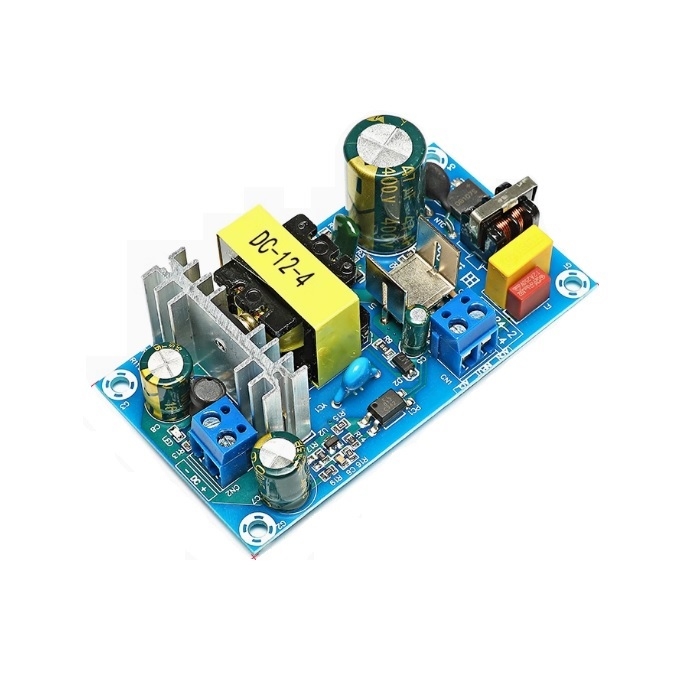5 Mistakes to Avoid When Selecting an AC/DC Power Converter for Your Product

Choosing the right AC/DC Power may not be the most glamorous part of your product design but it’s absolutely one of the most important. The power supply is what keeps your electronics running smoothly, safely, and efficiently. Get it wrong, and you're looking at problems like overheating, device failure, or even product recalls.
To help you get it right the first time, here are five common mistakes to avoid when picking an AC/DC Power Converter for your next project.
1. Ignoring Input and Output Requirements
It sounds obvious, but this is where many people trip up. Every device has a specific voltage and current requirement and not every converter is a one-size-fits-all solution.
Before selecting anything, double-check:
- Your input voltage range (especially if your product will be used globally)
- The output voltage and current needed to power your device reliably
Some devices may require regulated output, while others can tolerate slight variations. If your input power might fluctuate like in automotive or industrial settings, you’ll need a converter that can handle that without affecting performance.
Taking the time to match specs correctly upfront saves you from redesign headaches later.
2. Choosing Based on Price Alone
It’s tempting to go for the cheapest option, especially when you’re working with tight budgets. But with power components, you often get what you pay for.
Low-cost converters may:
- Fail under load
- Run hot
- Lack essential safety features
- Be made from substandard or uncertified components
This isn’t just a reliability issue it can be a safety hazard. If you’re designing something that goes into homes, hospitals, or industrial environments, using a low-quality AC/DC Power Converter can put your entire product line at risk.
Instead of only comparing prices, consider long-term value. Look at product certifications, thermal performance, and brand reputation before making a final decision.
3. Overlooking Thermal and Space Constraints
Power converters generate heat it’s a fact of life. If your converter doesn’t manage that heat well, it can overheat, shut down, or reduce the lifespan of your product.
Before finalizing your design, ask:
- How much heat does the converter generate under load?
- Will it require a heatsink or ventilation?
- Does it fit your physical design and mounting setup?
This is especially important in compact or enclosed systems where airflow is limited. A converter might work fine in open testing but fail when installed in your final housing.
Proper thermal design, including clearance and airflow, can make a huge difference in performance and durability.
4. Ignoring Regulatory and Safety Compliance
If your product will be sold internationally or used in sensitive sectors like healthcare or telecom, meeting regulatory standards isn’t optional it’s mandatory.
Some standards you should be aware of:
- IEC 62368-1 (safety)
- RoHS & REACH (environmental)
- EMC (electromagnetic compatibility)
Choosing a power supply product that doesn’t meet these certifications can slow down product approvals or lead to failed inspections. It's better to work with converters that come pre-certified from reliable manufacturers.
When in doubt, check documentation and don’t be afraid to ask the supplier for test reports or compliance details.
5. Not Planning for Future Scalability or Supply Chain Risk
Let’s say you find the perfect converter for your prototype. Everything works great until it goes out of stock, or the supplier discontinues it just before your first production run.
To avoid this, think ahead:
- Is this converter widely available from multiple vendors?
- Can you easily find alternatives or drop-in replacements if needed?
- Does the supplier have a long-term supply roadmap?
A good AC/DC Power Converter is more than a technical match it should also be a reliable part of your overall supply chain. Choosing one with long-term availability and support will make scaling your product far smoother.
Final Thoughts
Choosing the right AC/DC Power Converter isn’t just about matching voltage specs it’s about balancing performance, safety, efficiency, and reliability for the long haul.
Avoiding the five mistakes above can help you create a more robust, dependable, and professional product whether you’re building a wearable device, industrial controller, or consumer appliance.
Take the time to do your research, ask the right questions, and work with trusted suppliers. The power supply may be small, but its impact on your product’s success is huge.
- Questions and Answers
- Opinion
- Motivational and Inspiring Story
- Technology
- True & Inspiring Quotes
- Live and Let live
- Focus
- Art
- Causes
- Crafts
- Dance
- Drinks
- Film/Movie
- Fitness
- Food
- Παιχνίδια
- Gardening
- Health
- Κεντρική Σελίδα
- Literature
- Music
- Networking
- άλλο
- Party
- Religion
- Shopping
- Sports
- Theater
- Wellness
- News
- Culture

